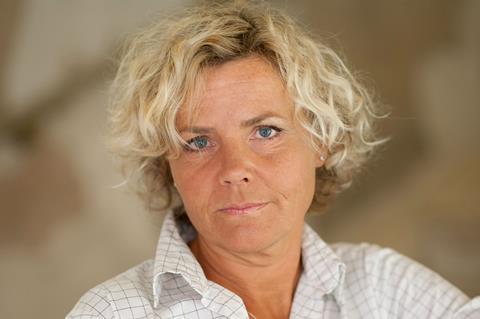
Gender equality came under the spotlight at the European Film Academy’s awards weekend in Seville. Anna Serner, CEO of the ground-breaking Swedish Film Institute (SFI), which has achieved gender parity in the number of films it now backs, gave the keynote address.
She explained commissioners are instructed to make funding decisions based on relevance, originality and craft, and not (just) by setting quotas.
“We want to find the women who have potential,” she explained. “Potential is not [only] male.”
“The men in Sweden have shaped up. It’s harder to get our money now,” Serner said. “We used to have 80% [applications rejected], and now that is 95%. It’s tougher to get our money, but we are showing the world it’s worth it.”
The SFI released a report about financial inequality for female filmmakers last week that revealed female directors in Sweden are still working with lower budgets than their male counterparts.
Rebecca O’Brien, Ken Loach’s longtime producer and co-founder of the UK’s Sixteen Films, joined Serner after her keynote for a panel discussion. She pointed to strong momentum in the UK now, such as Emma Watson donating $1.4 million to the Justice and Equality Fund, and BAFTA’s adoption of the BFI’s Diversity Standards for its two British film-focused awards.
“As a producer back in the 80s I worked on a film which had an almost entirely female crew, except for a few electricians, as an experiment,” O’Brien recalled. ”And I thought, ‘Here’s the ball rolling.’ It’s similar with black and minority ethnic stories. Back in the ‘80s I was working on multicultural TV series. This was nearly 40 years ago. I thought that engine would start the stories rolling, but it’s taken until this decade for things to really happen. It felt like it went backwards. The intention was there so maybe we went about it the wrong way.”
She added the approach now was more successful: “Looking for stories relevant to our times …. can be a much more powerful engine.”
Serner encouraged the industry to set goals to achieve real change. “If you set up a goal, you need to work in new ways. Otherwise you keep doing what you were doing with the same guys. Let’s stick to the notion that we all want the best stories, we all want new stories, whoever tells them. We want them to be good enough to reach an audience. That means we need to consider every voice to have the same potential.”
“I believe in laws to change things,” echoed panelist Valérie Delpierre of Spain’s Inicia Films, whose credits include Summer 1992.
Female-led films gross more, says US report
The EFA debate came in the same week as the publication of a report conducted in the US by CAA and Shift7 using Gracenote’s box- office data for the 350 top-grossing films released between 2014-2017 in the US, that discovered female-led films performed better at the US box office in that period.
The report defined ‘female led’ as when a woman was listed first among the cast in official press materials; a director’s gender wasn’t taken into account.
The US report also found films that pass the Bechdel Test, where two female characters have a conversation about something other than a man – surpassed the box-office performance of films that fail the test (at all budget levels).
Gender equality could come quicker in Europe with its systems of public funding, Serner said. “It’s much easier if you have a public funder or a legal system, you can demand that public funders have equality because there are as many women paying taxes as men.”
“Imagine Warner Bros saying, ‘Hey we want to have 50% female directors when you are pitching your film’,” Serner continued. “They would find 50 totally competent women I’m sure! It’s just up to the top management to make a decision, do we want to change or not?”






![The Brightest SunScreen[Courtesy HKIFF]](https://d1nslcd7m2225b.cloudfront.net/Pictures/274x183/3/5/0/1448350_thebrightestsunscreencourtesyhkiff_312678.jpg)


















No comments yet